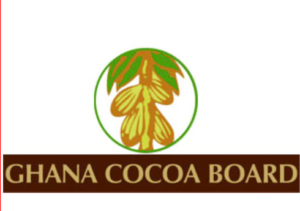Improvement of cocoa sector requires collective effort – COCOBOD
 Dr Emmanuel Agyemang Dwomoh, the Deputy Chief Executive Officer, Ghana Cocoa Board (COCOBOD) said government recognized the effort of the private sector in ensuring greater improvement in the development of the cocoa sector.
Dr Emmanuel Agyemang Dwomoh, the Deputy Chief Executive Officer, Ghana Cocoa Board (COCOBOD) said government recognized the effort of the private sector in ensuring greater improvement in the development of the cocoa sector.
He lauded the introduction of the CocoaSoils project, a public-private partnership initiative, aimed at improving soil fertility using an integrated soil fertility management approach.
He said the private sector was crucial because of its role as the engine of growth.
Dr Dwomoh said this in Accra on Thursday at the CocoaSoils forum on the theme “CocoaSoils Programme: Sustainable Intensification of Cocoa Production Through the Development and Dissemination of Integrated Soil Fertility Management”.
The forum brought together stakeholders in the agriculture sector, both local and international, to chart the way forward in improving cocoa production in four cocoa growing countries-Ghana, Nigeria, Cote d’Ivoire and Cameroon.
The CocoaSoils programme, is a Norwegian funded public private partnership, that seeks to sustainably intensify cocoa productivity and to reduce the cocoa-driven deforestation through the development and dissemination of integrated soil fertility management practices whiles improving the livelihoods of farmers.
He said COCOBOD had invested highly into the purchases and distribution of fertilizer, all aimed at ensuring sustainable growth of the cocoa industry and the development of appropriate soil types in the country, as part of the national efforts to ensure annual growth of the overall production.
The Deputy CEO said government was aware of poor soil fertility and the devastating effects of fertilizer residues on the soil and as a result, COCOBOD had taken interest in the process that leads to certification of fertilizers for the ordinary cocoa farmer.
“We have over the years insisted on due diligence in the testing and recommendation of fertilizer types for our gallant farmers to ensure positive physiological response to different cocoa genotypes, to nutritional treatment across all cocoa growing areas in the country,” he said.
Dr Dwomoh stated that COCOBOD was committed to all programmes geared towards the success of the national efforts to improve cocoa production in the country.
He said Government had shown great commitment in the development of the cocoa industry and had signed series of bilateral agreements with its neighbours in Cote d’Ivoire and the other cocoa processing companies in the world, to ensure a better world market price of cocoa and improve cocoa farmers income and livelihoods.
Dr Dwomoh was optimistic that the integrated soil fertility management approach being adapted through CocoaSoils project would enhance soil nutrients for improved cocoa productions.
He said the Research for Development component of the project would facilitate access to new information and ensure the transfer of the generated recommendations to farmers for higher yields.
“COCOBOD is committed to ensuring the success of the projects and with Cocoa Research Institute of Ghana as the focal point and key implementer, COCOBOD would make all the required resources available to ensure the success of the programme, especially in making key policy,” he emphases.
Dr Richard Asare, Coordinator for CocoaSoils Project said the initiative combined state of the art scientific research with the latest and accessible extension delivery innovations.
He said the objective of the project was to ensure a sustainable cocoa supply sector with increased productivity of 30 per cent of cocoa farms, efficient use of agricultural inputs and improved rural livelihoods, while avoiding deforestation.
Dr Asare said low cocoa yields result in enhanced deforestation with smallholder agriculture being one of the major drivers for deforestation in cocoa-producing areas.
He said it was expected that at the end of the forum, participants would have a better understanding of the vision and strategy of the CocoaSoils project, the potential of the long-term research programme linking the Research for Development and Partnership for Delivery component to increase cocoa yields.
Source: GNA
